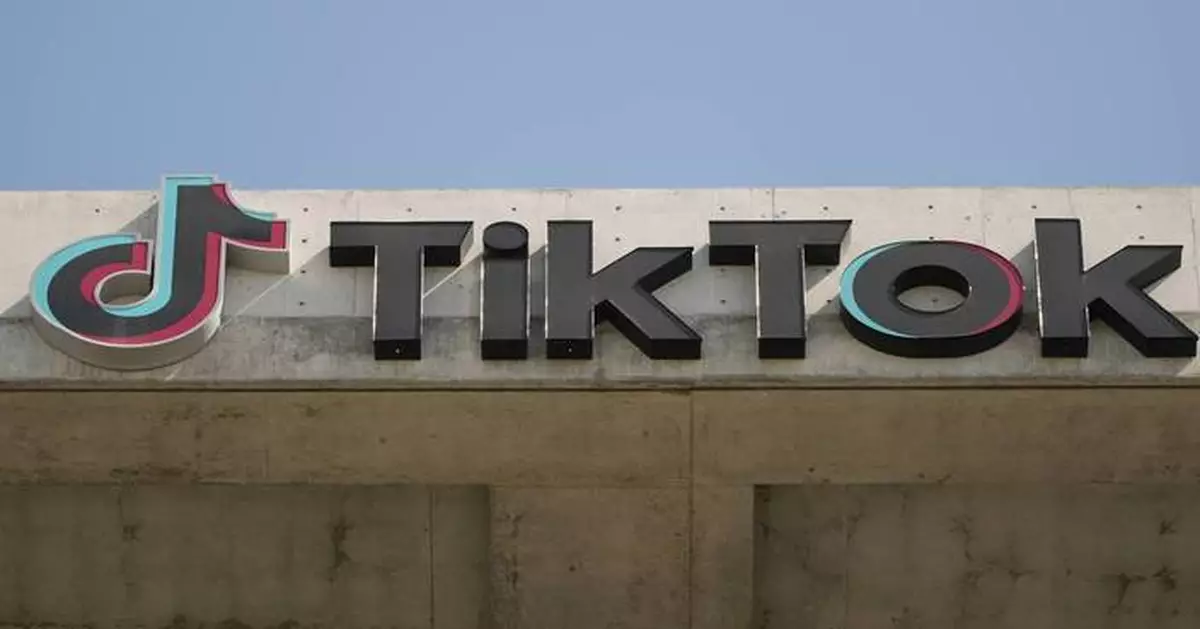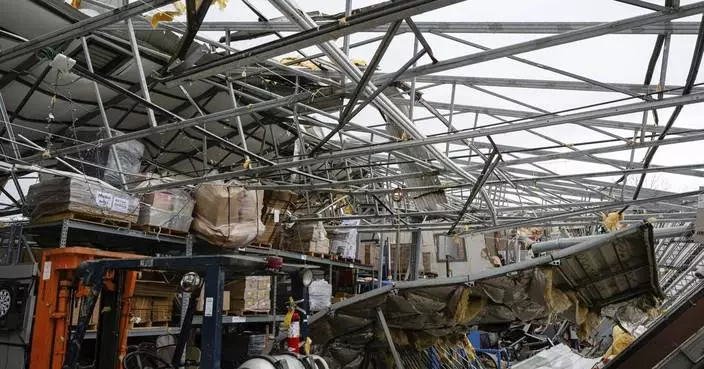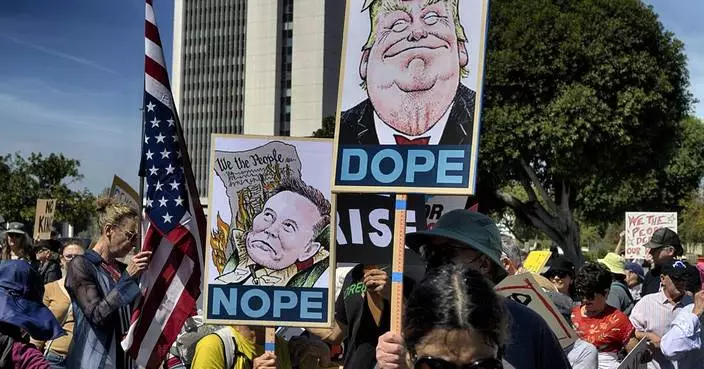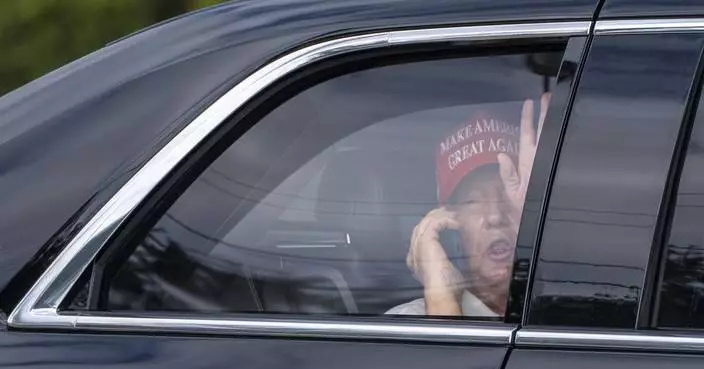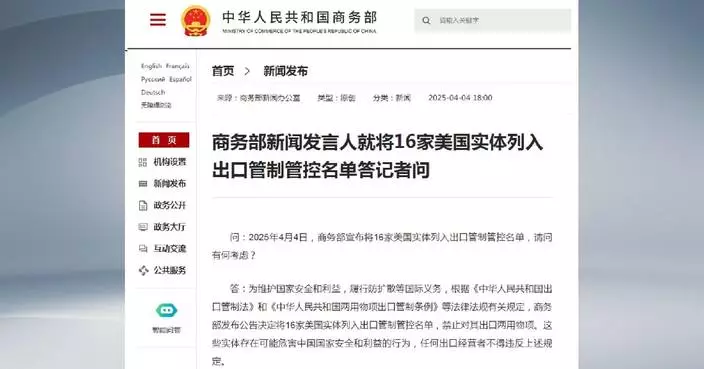FRANKFURT, Germany (AP) — TikTok has agreed to withdraw a rewards feature that raised concerns about its potential to encourage excessive screen time, particularly among children, the European Union’s executive commission said Monday.
It was the first resolution of an investigation under the 27-country EU's sweeping Digital Services Act, which went into effect in February and aims to ensure a “safe and accountable online environment” by regulating large digital platforms.
TikTok made the commitment without conceding the feature violated the Digital Services Act, officials said.
The commission has however ruled that the withdrawal is legally binding, which “sends a clear message to the entire social media industry,” said Margrethe Vestager, European commission for digital affairs.
“Design features on platforms with addictive effects put the well-being of their users at risk,” she said in a statement. “That’s why we have made TikTok’s commitments under the DSA legally binding.”
The case involves TikTok Lite, a low-bandwidth version of the app released in Spain and France. It allowed users to earn points for things like following creators, liking content, or inviting friends to join TikTok. The points could be exchanged for Amazon vouchers and gift cards on PayPal. TikTok said rewards were restricted to users 18 years and older, who had to verify their age. Users could watch up to one hour a day of videos to earn rewards, which were capped at the equivalent of one euro ($1.09) a day.
The commission opened an investigation in April due to concerns that TikTok has not done a diligent assessment required under the act of the feature's potential “addictive effect,” especially for children, "given suspected absence of effective age verification mechanisms on TikTok."
The resolution of the TikTok Lite investigation does not affect an earlier probe launched against TikTok focusing on concerns about protection of minors, advertising transparency, data access for researchers, and mitigating risks of “behavioral addiction" and harmful content.
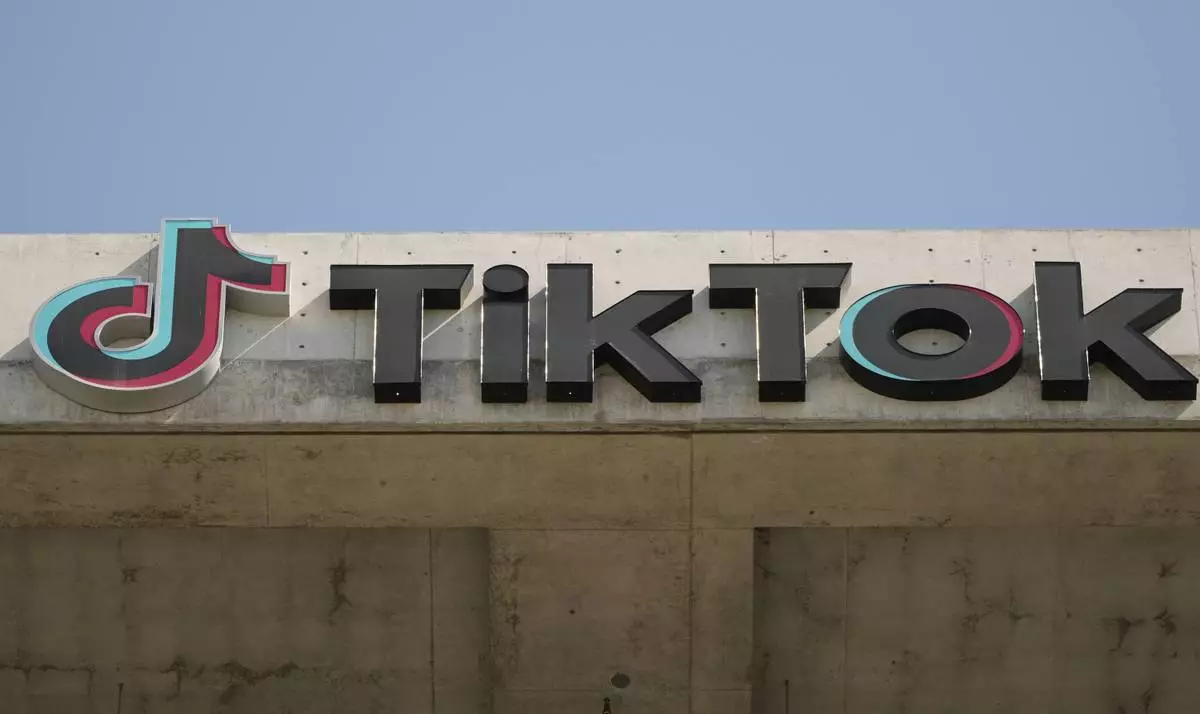
FILE - A TikTok sign is displayed on their building in Culver City, Calif., March 11, 2024. Officials from the European Union's executive commission said Monday, Aug. 5, 2024, that TikTok has agreed to withdraw a rewards feature that raised concerns about its potential to encourage excessive screen time, particularly among children. (AP Photo/Damian Dovarganes, File)
TAMPA, Fla. (AP) — Sarah Strong and Azzi Fudd didn’t even need much help from superstar Paige Bueckers to propel UConn into the national title game, leading the Huskies to a remarkably easy 85-51 victory over UCLA on Friday night in the Final Four of the women’s NCAA Tournament.
Strong finished with 22 points and Fudd scored all of her 19 points in the first half for the second-seeded Huskies, who are one win away from their 12th national championship and first since the team won four straight from 2013-16, led by Breanna Stewart. The eight-year title drought is the longest for the Huskies since they won their first in 1995.
“We aren’t worried about the past. Every single day you walk into the gym and live up to the standard of playing UConn basketball,” Bueckers said. “Not comparing yourself to other teams and players before. We want to fill their shoes and make them proud. Wear the jersey with pride.”
UConn will face defending champion South Carolina on Sunday for the title after the Gamecocks beat Texas 74-57 earlier Friday night. It’s a rematch of the 2022 championship game, which the Gamecocks won 64-49. The teams met in February and UConn shocked South Carolina with a 29-point road victory.
“They've played basketball at an exceptionally high level when you think about the Final Fours they've been too and the consistency in their program," UConn coach Geno Auriemma said. “The ability to win national championships multiple times and (they) are in a position to win back-to-back ones.”
Bueckers, the likely top pick in the WNBA draft on April 14, finished with 16 points after topping 30 in each of the previous three games for the Huskies (36-3).
“If Paige had 16 last year, we wouldn't have made it to the Final Four,” Auriemma said. “If she had the game she had today the previous year, it would be almost impossible for us to win.”
All-America center Lauren Betts scored 26 points for top overall seed UCLA (34-3).
UConn got off to a hot start with Strong and Fudd leading the way. Even when shots looked off, they found their way in. Fudd, one of the best shooters in the country whose career at UConn has been interrupted by multiple injuries, banked in a 3-pointer from the top of the key, prompting Auriemma to throw his arms in the air and smile.
“It’s just so much fun to watch her play with joy and be at this stage,” Bueckers said of Fudd. “You see all the ups and downs, the bad days, the good days and to be at this spot where it’s the light at the end of the tunnel and for her to perform and be at this stage, it means everything to us.”
The Huskies led 23-13 at the end of the first quarter. They continued the onslaught behind Fudd to open a 42-22 advantage at the break. Bueckers had the play of the half with a touch pass in the air to Kaitlyn Chen for a layup late in the second quarter.
UCLA never threated in the second half as the 6-foot-7 Betts had little help. UConn ended up breaking its own record for margin of victory in the Final Four or national title game — the Huskies won the 2013 championship by 33 points over Louisville.
The Bruins fell short in their first appearance in the NCAA Final Four. UCLA won a national title in 1978 in the pre-NCAA era of women’s basketball. The Bruins were looking to become the first team from the Big Ten, a conference they joined this season, to win a championship since Purdue did it in 1999.
UCLA cruised through its best regular season, earning the No. 1 ranking in the AP Top 25 for the first time and holding the spot for 14 weeks.
The Bruins only lost twice this year before Friday, both to JuJu Watkins and USC. UCLA got a measure of revenge by beating USC to win the Big Ten Tournament in its first year in the league after the dismantling of the Pac-12. The Bruins set a program record for wins in a season and won 23 consecutive games, including 22 in a row by double digits.
AP March Madness bracket: https://apnews.com/hub/ncaa-womens-bracket and coverage: https://apnews.com/hub/march-madness Get poll alerts and updates on the AP Top 25 throughout the season. Sign up here.

UCLA forward Janiah Barker (0) battles for a rebound against UConn guard KK Arnold (2) and guard Paige Bueckers (5) during the first half of a national semifinal Final Four game during the women's NCAA college basketball tournament, Friday, April 4, 2025, in Tampa, Fla. (AP Photo/John Raoux)

From left, UCLA guard Londynn Jones (3), guard Kiki Rice (1) and forward Timea Gardiner (30) react during the second half of a national semifinal Final Four game against UConn during the women's NCAA college basketball tournament, Friday, April 4, 2025, in Tampa, Fla. (AP Photo/John Raoux)

UConn players react late in the second half of a national semifinal Final Four game against the UCLA during the women's NCAA college basketball tournament, Friday, April 4, 2025, in Tampa, Fla. (AP Photo/John Raoux)

UConn head coach Geno Auriemma motions to players during the first half of a national semifinal Final Four game against UCLA during the first half during the women's NCAA college basketball tournament, Friday, April 4, 2025, in Tampa, Fla. (AP Photo/John Raoux)

UCLA guard Kiki Rice (1) falls over UConn guard Kaitlyn Chen (20) as they go after a rebound during the second half of a national semifinal Final Four game during the women's NCAA college basketball tournament, Friday, April 4, 2025, in Tampa, Fla. (AP Photo/John Raoux)

UConn guard Azzi Fudd (35) shoots against UCLA center Lauren Betts (51) during the second half of a national semifinal Final Four game during the women's NCAA college basketball tournament, Friday, April 4, 2025, in Tampa, Fla. (AP Photo/Chris O'Meara)

UConn guard Azzi Fudd (35) is greeted by teammates as she comes off the floor during a break in play against UCLA during the second half of a national semifinal Final Four game during the women's NCAA college basketball tournament, Friday, April 4, 2025, in Tampa, Fla. (AP Photo/Chris O'Meara)

UConn guard Paige Bueckers (5), forward Sarah Strong (21) and center Jana El Alfy (8) react late in the game against UCLA during a national semifinal Final Four game of the women's NCAA college basketball tournament, Friday, April 4, 2025, in Tampa, Fla. (AP Photo/John Raoux)

From left, UConn forward Sarah Strong (21), guard Paige Bueckers (5) and guard Azzi Fudd (35) react during the second half of a national semifinal Final Four game against UCLA during the women's NCAA college basketball tournament, Friday, April 4, 2025, in Tampa, Fla. (AP Photo/Chris O'Meara)

UConn center Jana El Alfy (8) and UConn guard Paige Bueckers (5) react during the first half of a national semifinal Final Four game against UCLA during the women's NCAA college basketball tournament, Friday, April 4, 2025, in Tampa, Fla. (AP Photo/Chris O'Meara)



